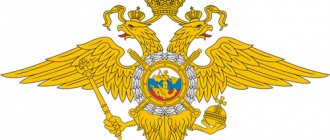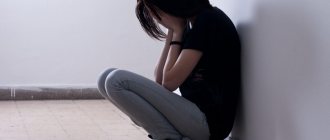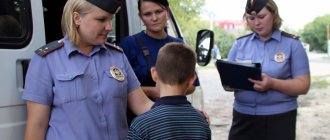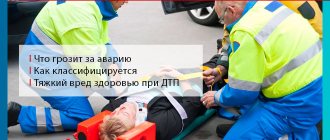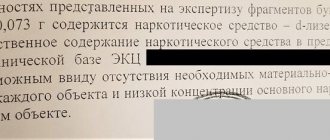Parents have the right to raise a child, and also bear responsibility and responsibilities for the upbringing and development of the child. According to the Family Code of the Russian Federation, this is called parental rights.
Parental rights terminate when children reach the age of 18 (the age of majority), as well as when minor children marry and in other cases established by law when children acquire full legal capacity before reaching adulthood.
Parents have the right:
- protect the rights and legitimate interests of children, speak before individuals, including in courts, their legal representatives without obtaining special powers;
- to ensure that the state makes it generally accessible and free for their children to receive basic general education;
- to choose for their children (before they receive basic general education) forms of education and types of educational institutions, including family education or in non-state educational institutions;
- to reimburse at the expense of the state the costs of educating children in non-state educational institutions that have state accreditation and implement general education programs;
- for the admission of children for study in educational institutions located at the place of residence;
- to familiarize yourself with the charter of the educational institution and other documents regulating the organization of the educational process;
- to participate in the management of the educational institution in which their children study;
- to get acquainted with the progress and content of the educational process, as well as with assessments of the progress of their children;
- to transfer a child receiving education in a family to continue education in a general education institution with positive certification;
- express consent (or disagreement) for children to undergo military training in civilian educational institutions on an optional basis:
- ensure the religious and moral education of children in accordance with their own beliefs; - for assistance from the state in fulfilling their responsibilities for the education and upbringing of children; - to care and support from their adult children, if the parents have not been deprived of parental rights; — parents living separately from the child have the right to communicate, participate in upbringing, resolve educational issues, and receive information about their child from educational, educational and other institutions (restrictions are possible only if there is a threat to the life or health of the child).
Parents are obliged:
- ensure and protect the rights and interests of their children, not cause harm to the physical and mental health of children, their moral development;
- raise children, excluding neglectful, cruel, rude, degrading treatment, insult or exploitation;
- ensure that children under 15 years of age receive basic general education in a general education school or in another educational institution equivalent in status;
- comply with the charter of the educational institution;
- to prevent improper interference in the work of teachers on issues that, by their nature, fall within the scope of the teacher’s professional responsibilities;
- to provide, within the limits of their abilities, the living conditions necessary for the normal development of the child;
- support their minor children (the procedure and forms for providing maintenance to children are determined by the parents independently; if parents do not provide maintenance to their minor children, funds for the maintenance of children (alimony) are collected from the parents (parent) in court).
For failure to fulfill or improper fulfillment of parental responsibilities, as well as for committing offenses against their children, parents bear administrative, criminal and other liability.
What administrative penalties can be applied to parents?
Commissions for the affairs of minors and the protection of their rights can apply administrative measures to parents (announce a public reprimand or warning, impose an obligation to make amends for the harm caused or impose a fine):
- in case of malicious failure of parents to fulfill their duties in raising and educating children;
- for driving them to a state of intoxication or consuming drugs without a doctor’s prescription;
- for violations of traffic rules by teenagers under 16 years of age;
- for the appearance of children in public places while drunk, as well as for their drinking of alcoholic beverages or in connection with the commission of other offenses.
In what cases are parents held criminally responsible?
The Criminal Code of the Russian Federation provides for special provisions on the criminal liability of parents for:
- involving minor children in committing a crime through promises, deception, threats or in any other way;
- involvement of a minor in the systematic use of alcoholic beverages and intoxicants;
- involvement in prostitution, vagrancy or begging;
- failure to fulfill or improper fulfillment of responsibilities for raising children, if these acts are associated with cruel treatment;
- malicious evasion of payment of funds for child support.
Who is responsible for harm caused by a child under 14 years of age?
Parents, unless they prove that the harm was not their fault. If at the time of the harm the minor was under the supervision of a school, hospital, health camp, etc., the institution will be responsible for the harm unless it proves that the harm did not arise through its fault. But if the parents do not have sufficient funds to compensate for the harm, and the offender himself, having become legally capable, has such funds, the court has the right to demand compensation for the harm from the one who caused it.
Who and under what circumstances can deprive parents of parental rights or limit their rights?
Parents may be by court if they:
- evade fulfilling parental responsibilities, including maliciously evading payment of alimony;
- abuse parental rights;
- ill-treat children, including mental and physical violence, attacks on sexual integrity;
- committed a crime against the life or health of the spouse.
If there is an immediate threat to the child's life or health, the guardianship and trusteeship authorities may immediately take the child away from the parents based on a decision of the local government.
Taking into account the interests of the child, the court can take the child away from the parents without depriving parental rights (limitation of parental rights). Such a decision is possible due to circumstances beyond the parents’ control (dangerous diseases, difficult family circumstances, etc.), and in cases where leaving a child with his parents is dangerous for him.
What does termination of parental rights entail?
- Parents deprived of parental rights or limited in rights lose rights based on the fact of relationship with the child, as well as the right to benefits and state benefits established for citizens with children.
- Deprivation of parental rights does not relieve parents from the responsibility to support the child.
What is alimony?
Alimony is funds for the maintenance of minors or disabled children, recovered from
Alimony can also be collected from adult children in favor of disabled parents who need help.
The following also have the right to receive alimony:
- disabled minor brothers and sisters who cannot receive alimony from their parents, from adult and able-bodied brothers and sisters who have the necessary means;
- disabled minor grandchildren from grandparents who have the necessary means;
- disabled grandparents from able-bodied adult grandchildren who have the necessary means for this;
- a disabled stepfather and stepmother from an able-bodied adult stepson and stepdaughter who have the necessary means for this.
Is it possible to restore parental rights?
If a parent has changed his behavior, lifestyle or attitude towards raising a child, he can be restored to parental rights.
The rights of the child in the family and the responsibility of parents
CHILD'S RIGHTS IN THE FAMILY AND PARENTAL RESPONSIBILITY
(extracts from the main legal documents)
Convention on the Rights of the Child (approved by the UN General Assembly on November 20, 1989).
For the full and harmonious development of his personality, a child needs to grow up in a family environment; in an atmosphere of happiness, love and understanding.
Article 5.
States Parties shall respect the responsibilities, rights and obligations of parents ... who are legally responsible for the child to properly manage and guide the child in the exercise of the rights recognized by this Convention and to do so in accordance with the developing abilities of the child.
Article 18.
Recognition of the principle of common and equal responsibility of both parents for the upbringing and development of the child.
Article 27.
The right of every child to a standard of living necessary for the physical, mental, spiritual, moral and social development of the child. Parents or other persons raising a child bear the primary responsibility for providing, within the limits of their abilities and financial resources, the living conditions necessary for the development of the child.
Constitution of the Russian Federation (as amended as of June 9, 2001).
Article 38.
clause 1. Motherhood and childhood, the family are protected by the state; clause 2. Caring for children and raising them is an equal right and responsibility of parents; p.Z. Able-bodied children over 18 years of age must take care of disabled parents.
Federal Law of July 24, 1998 No. 124-FZ “On the basic guarantees of the rights of the child in the Russian Federation” (as amended as of July 20, 2000).
Article 7.
clause 2. The child’s parents (persons replacing them) assist him in carrying out independent actions aimed at realizing and protecting his rights and legitimate interests, taking into account the child’s age and within the scope of the child’s legal capacity established by the legislation of the Russian Federation.
Article 9.
clause 1. When carrying out activities in the field of education and upbringing of a child in a family... the rights of the child cannot be infringed.
Article 15.
If the court determines that the parents (persons replacing them) are guilty of violating the rights and legitimate interests of children, compensation for harm caused to children is determined by the court, taking into account the necessary measures for social rehabilitation and social adaptation of children.
Article 23.
clause 1. Parents (persons replacing them) ... have the right to apply to the court in the manner prescribed by the legislation of the Russian Federation with a claim for compensation to the child for harm caused to his health, property, as well as moral damage.
Family Code of the Russian Federation dated December 29, 1995 No. 223-FZ (as amended as of January 2, 2000).
Article 54.
clause 2. Every child has the right to live and be raised in a family, as far as possible, the right to know his parents, the right to be cared for by them, and the right to live together with them, except in cases where this is contrary to his interests. A child has the right to be raised by his parents, to ensure his interests, comprehensive development, and respect for his human dignity.
Article 55.
clause 1. The child has the right to communicate with both parents, grandparents, brothers, sisters and other relatives. The dissolution of the parents' marriage, its recognition as invalid or the parents' separation do not affect the rights of the child; clause 2. A child in an extreme situation (detention, arrest, detention, being in a medical institution, etc.) has the right to communicate with his parents and other relatives in the manner prescribed by law.
Article 56.
clause 1. The child has the right to protection of his rights and legitimate interests. Protection of the rights and legitimate interests of the child is carried out by parents (persons replacing them), and in cases provided for by this Code, by the guardianship and trusteeship authority, the prosecutor and the court; clause 2. A child has the right to protection from abuse by parents (persons in their stead).
In the event of a violation of the rights and legitimate interests of a child, including in the event of non-fulfillment or improper fulfillment by parents (one of them) of the responsibilities for the upbringing, education of the child, or in the case of abuse of parental rights, the child has the right to independently apply for their protection to the guardianship and trusteeship authority, and reaching the age of 14 years in court.
Article 57.
A child has the right to express his opinion when resolving any issue in the family that affects his interests... Taking into account the opinion of a child who has reached the age of 10 is mandatory, except in cases where this is contrary to his interests.
Article 60.
clause 1. The child has the right to receive maintenance from his parents and other family members in the manner and in the amounts established by the Law; clause 2. The amounts due to the child as alimony, pensions, benefits are placed at the disposal of the parents (persons replacing them) and are spent by them on the maintenance, upbringing and education of the child.
Article 63.
clause 1. Parents have the right and responsibility to raise their children. Parents are responsible for the upbringing and development of their children. They are obliged to take care of the health, physical, mental, spiritual and moral development of their children. Parents have a priority right to raise their children over all other persons.
Article 64.
clause 1. The protection of the rights and interests of children rests with their parents. Parents are the legal representatives of their children and act in defense of their rights and interests in relations with any individuals and legal entities, including in the courts, without special powers.
Article 65.
clause 1. Parental rights cannot be exercised in conflict with the interests of children. Ensuring the interests of children should be the main concern of parents. When exercising parental rights, parents do not have the right to cause harm to the physical or mental health of children or their moral development. Methods of raising children must exclude neglectful, cruel, rude, degrading treatment, insult or exploitation. Parents who exercise parental rights to the detriment of the rights and interests of children are liable in accordance with the procedure established by law.
Law of the Russian Federation of July 10, 1992 No. 3266-1 “On Education” (as amended as of December 27, 2000).
Article 18.
p. 1. Parents are the first teachers. They are obliged to lay the foundations for the physical, moral and intellectual development of the child’s personality in early childhood.
Article 52.
clause 2. Parents (legal representatives) of students and pupils are obliged to comply with the charter of the educational institution; clause 4. Parents (legal representatives) of students and pupils are responsible for their upbringing and their receipt of basic general education.
